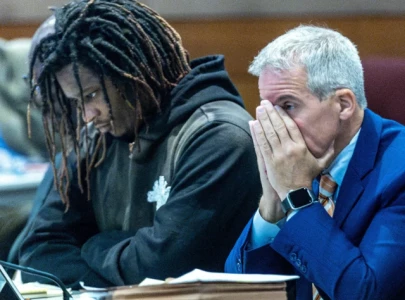One morning, we found the main courtyard of the premises encircled by shamianas. Groups of lawyers broke into impromptu bhangra and we also witnessed such spontaneous dancing on other random occasions. A candidate had thrown a canvassing party. Court activity ceased in the absence of the agents of justice. Half a day was lost. Copious quantities of siri payay were consumed. The courtyard seemed to be a medieval battleground with a rich harvest of bones. On another morning, the lawyers were on strike for the better part of the day to protest the murder of a colleague in a distant town. The litigants silently looked on.
Since our survey was focused on litigants, we also asked probing questions about their experiences with lawyers. We wanted to tacitly avoid any unnecessary interaction with the latter. We were not always successful. Here is one instance. Many surveyors were young ladies; modestly attired to avoid unwanted attention. However, a couple were persistently pursued by some lawyers who asked for their cell numbers and insisted that they join them for a glass of fruit juice. When polite evasion did not work, they informed their admirers that their professor was zealously fond of free fruit juice and would deeply begrudge not being invited. Enthusiasm temporarily curbed, they retreated to try their luck another day. It was invariably the very next one. Others approached us and demanded — at times aggressively — to scrutinise our questionnaire or an explanation of our real ‘agenda’. The challenge was stiffer if we approached a litigant whose lawyer was close by. Many litigants were noticeably reluctant to speak candidly in their presence. Admittedly, we also came across some lawyers who had no objection to our talking to their clients. Some even appreciated our endeavour. They were also the ones who gave their clients company while their colleagues frequently canvassed, protested, chanted, shouted, dined in public, or boycotted. One could detect their discomfort and embarrassment.
While the respondents generally avoided any direct questions about their lawyers’ performance, quite a few spoke up. Almost 28 per cent of the 440 respondents expressed ‘dissatisfaction’ or ‘deep dissatisfaction’. Another eight per cent were reluctant or apprehensive to comment. Importantly, 63 per cent of those expressing ‘deep dissatisfaction’ had a monthly household income of less than Rs30,000. Meanwhile, 82.5 per cent of those reluctant to comment had a monthly household income of less than or equal to Rs20,000. So, the poorer litigants were obviously also the unhappier ones. Respondents were also asked reasons for their dissatisfaction and allowed multiple responses. “Punctuality in appearing in court” (60); “following client’s instructions” (49); “delays” (43); “ineffective argumentation in court” (41); “overbooking of cases and unavailability” (39); “legal fees and expenses” (33); “competence in law” (26); “explanation of the client’s case and legal strategy” (16); and, “availability to answer client questions” (16), were the most frequently quoted issues.
In more general narratives about their experiences in court, many respondents were far less inhibited in their critique of lawyers — even when they had earlier reported satisfaction in response to a direct question on lawyer performance. One respondent said: “Let me tell you about one of their money-making tactics. Just when the court usher calls one’s case for hearing, the lawyer asks for Rs500 or Rs1,000 with the ruse of taking care of some urgent case related expenses. Given how anxious litigants generally are and the clever timing of the request, one has no option but to hand over the money or risk offending the lawyer and his refusal to appear in court.” Another reported: “My opponent’s case has been dismissed four times for non-prosecution. But his lawyer somehow manages to resuscitate it every time.” One alleged: “My opponent’s lawyers assist him in forging legal documents.” Another complained: “My lawyers colluded with my opponent and we only found out very late in the day.” One litigant voiced: “As a pressure tactic, a female lawyer assembled a crowd of her ally lawyers in the court of a female judge and then used abusive language.” Another described: “These days the lawyers are so aggressive that judges try and stay out of the fray when they fight.” According to another: “Lawyers are headed in the wrong direction. They are more interested in politics than in representing their clients.” Someone else agreed: “They just want to protest and go on strikes all the time.” One particular respondent simply seemed in a state of bewilderment: “Lawyers are the most ajeeb-o-ghareeb (weird) people that I have ever come across.” There were many types of specific indictments. Some were aggrieved enough to deliver drastic metaphysical predictions of retributive fire and brimstone.
In the lead-up to India’s independence, many native lawyers proved their mettle as the greatest champions of their era for liberty or death. They remain global icons. Post-independence, the Pakistani legal fraternity’s pro-democracy sacrifices are the precious luminous chapters in the vast murky saga of our martial laws. However, starkly apparent in recent years is this very fraternity’s inability to separate its ‘political’ role from its ‘professional’ responsibilities. It has been staunchly resistant to several ideas and opportunities for self-regulation, accountability, reform and upgrading of ethical and professional standards. This has not just eroded its professional reputation but badly dented its political credibility.
Published in The Express Tribune, March 7th, 2012.
COMMENTS (10)
Comments are moderated and generally will be posted if they are on-topic and not abusive.
For more information, please see our Comments FAQ




1729137363-0/Liam-Payne-fans-(1)1729137363-0-165x106.webp)









@yousaf: - I am surprised that you should defend the irresponsible behavior of Pakistani lawyers under the garb of flaws in the legal system. Granted there are countless flaws in the judicial system, but none that forbids abiding by the rules.
No lawyer is forced to collude with the opponent, encourage or even assist in forging documents, or extract money on flimsy grounds from their vulnerable and unsuspecting client, at the most sensitive time. If you still believe all this to be the fault of the system, you must be hallucinating.
@John B: what is the bar council doing - The Bar Council is elected by these rogue lawyers. What you expect from them?
@BruteForce: Lets not decide on wat world thinks. Lets decide things on common sense. If you suck up to america and they have accepted your leaders doesn't mean they were right.
Spot on. An important and timely piece.
"In the lead-up to India’s independence, many native lawyers proved their mettle as the greatest champions of their era for liberty or death. "
For me it was people like Motilal Nehru, Jawarlal Nehru and Mahatma Gandhi, who were lawyers and spent several years in Jail for their Country. Thank God, their efforts paid off and India today is a progressive nation. With drawbacks, yes, but on the right track.
But, those who didn't spend a day in jail and blurted out absurd theories such as two-nation theories are also put in the same bracket as the above mentioned greats, which is really shameful. Thankfully, the World disagrees and remembers only Gandhi and Nehrus fondly.
The lawyers movement in 2009 was an utter failure. However it gave the lawyers a false sense of self-importance which is a headache for us.
@author:--Your article could have been much informative and suggestive if the legal system had been discussed in its totality.The flaws in our legal system are not because of the lawyers" behaviour.They have only to abide by the rules laid down by the authorities who in turn are responsible to make sure that each member of the system does his duty dutifully.Putting blame on lawyers alone and then discussing about their indifferent attitude is just a waste of time as it is not going to bear any fruit
When they are accountable to no one, what remedy is there. Their professional conduct was evident when they showered rose petals and similar theatrics on other occasions.
PAK judiciary is to blame as well. Why do the judges allow these lawyers to appear before their bench and what is the bar council doing?